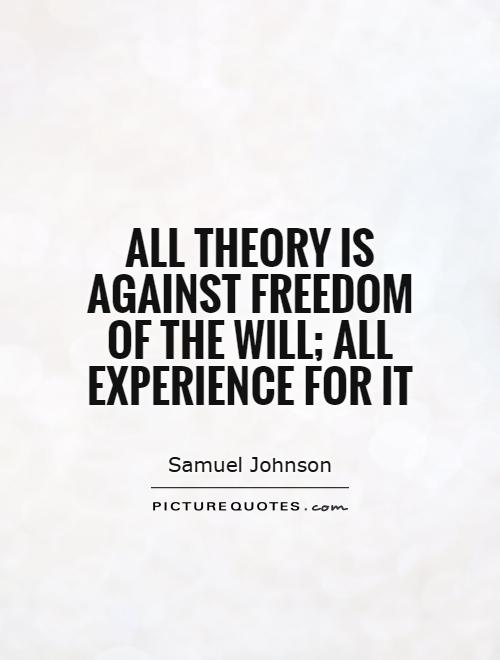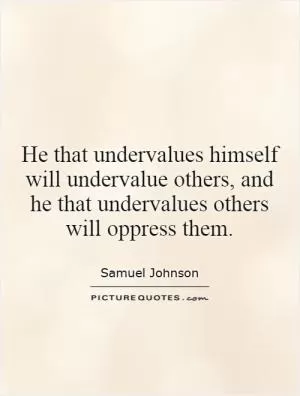All theory is against freedom of the will; all experience for it

All theory is against freedom of the will; all experience for it
The quote "All theory is against freedom of the will; all experience for it" holds particular relevance in the context of Samuel Johnson, a renowned 18th-century English writer, critic, and lexicographer. Johnson's works often grapple with the complexities of human nature, morality, and the limitations of individual agency. His writings reflect a deep engagement with the tension between determinism and free will, a theme that resonates throughout his oeuvre.Johnson's skepticism towards the concept of free will is evident in his moral and philosophical writings. In his famous work "Rasselas," Johnson explores the futility of human striving and the inevitability of fate. The protagonist, Prince Rasselas, embarks on a quest for happiness and fulfillment, only to discover that external circumstances and internal desires ultimately shape his destiny. Johnson's portrayal of Rasselas's struggles highlights the constraints imposed by societal norms, personal desires, and the unpredictable nature of life.
Johnson's views on free will are further elucidated in his essays and critical writings. In his "Rambler" essays, Johnson reflects on the complexities of human behavior and the limitations of individual agency. He argues that human actions are often influenced by external factors such as social expectations, cultural norms, and personal experiences. Johnson's emphasis on the role of external influences in shaping human behavior aligns with the quote's assertion that theory tends to undermine the concept of free will.
However, Johnson's own life and experiences offer a counterpoint to his theoretical musings on free will. Despite his philosophical skepticism, Johnson's personal struggles and triumphs demonstrate the power of individual agency and resilience. Johnson overcame numerous obstacles, including poverty, illness, and social prejudice, to become one of the most celebrated literary figures of his time. His perseverance and determination in the face of adversity exemplify the transformative potential of human willpower and agency.












 Friendship Quotes
Friendship Quotes Love Quotes
Love Quotes Life Quotes
Life Quotes Funny Quotes
Funny Quotes Motivational Quotes
Motivational Quotes Inspirational Quotes
Inspirational Quotes